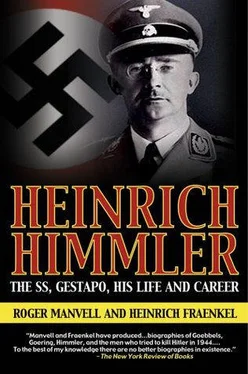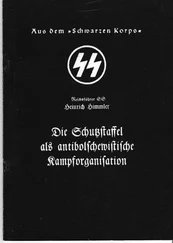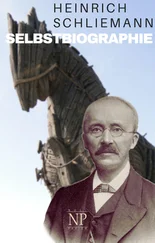During 1925 Goebbels and Himmler met at Landshut during the course of their work for the Strassers. It soon became apparent that while Goebbels was the brilliant speaker and potential journalist, Himmler’s talent lay rather in desk-work and other, more pedestrian, activities. It has been assumed, based largely on loose statements made by Otto Strasser, that Himmler was displaced in the Strassers’ service by the vain and volatile young man from the Ruhr. 10This was far from the case. Goebbels, during his frequent visits south, became increasingly fascinated by Hitler, who soon recognized his talents and, during 1926, flattered him into accepting the difficult post of Gauleiter, or party organizer, in Berlin. Previously, however, Goebbels had spent the greater part of his time in the Ruhr when he had not been engaged in special conference work for Strasser or Hitler in other parts of the country. Himmler, on the other hand, consolidated his own position in Lower Bavaria during 1925 to a sufficient extent to be able to write as follows at the end of the year to Kurt Lüdecke, one of Hitler’s supporters who was soon to leave for America:
‘Dear Herr Lüdecke,
Excuse my bothering you with this letter and taking the liberty of addressing a question to you. Perhaps you know that I am now working in the management of the district of Lower Bavaria for the Party. I also help with editing the local “folk” journal, the Kurier für Nieder-Bayern.
‘For some time I have entertained the project of publishing the names of all Jews, as well as of all Christian friends of the Jews, residing in Lower Bavaria. However, before I take such a step I should like to have your opinion, and find out whether you consider such an undertaking rich in prospects and practicable. I would be very indebted to you if as soon as possible you would give me your view, which for me is authoritative, thanks to your great experience in the Jewish question and your knowledge of the anti-Semitic fight in the whole world.’ 11
According to Lüdecke, Gregor Strasser laughed when he was told of the letter, saying in effect that Himmler was getting fanatical about the Jews. ‘He’s devoted to me, and I use him as secretary’, he added. ‘He’s very ambitious, but I won’t take him along north — he’s no world-beater, you know.’
Himmler’s ambitious diligence, however, won him the position of Strasser’s deputy as district organizer in Lower Bavaria, working of course under Hitler’s shadow in Munich. He also became second-in-command of a small corps numbering some two hundred men and known as the Schutzstaffel, or S.S. The S.S. was originally a group formed in 1922 before the Munich putsch and called the Adolf Hitler Shock Troops, a special bodyguard of tough men who kept close to Hitler on public occasions and guarded him from attack. According to his official record Himmler had joined the S.S. in 1925, receiving the S.S. number 168. The reformed S.S. marched past Hitler at the second Party gathering in Weimar in 1926, and they were given a special ‘blood-flag’ for their services to their leader in the November putsch. These services had been to wreck the printing presses of the Social Democrat newspaper in Munich.
The main task for Himmler in the Party offices at Landshut, where a portrait of Hitler frowned down on his activities, was to increase the Party’s supporters. His initial salary was 120 marks a month, and the local S.S. were sent out to collect subscriptions and canvas advertisements for the Party newspaper, the Völkischer Beobachter. In 1926 he was made Deputy Reich Propaganda Chief, and this gradual accretion of subordinate offices led to a modest increase in his salary. Yet he seems to have made little impression at this stage other than by being a willing and dutiful administrator. There are glimpses of him in Goebbels’s excited diary during the period of Party expansion before he went to Berlin — on 13 April 1926, for example, during a speaking tour, he writes: ‘with Himmler in Landshut; Himmler a good fellow and very intelligent; I like him’. On 6 July, ‘ride on the motor-bike with Himmler’; and, on 30 October, ‘Zwickau. Himmler, gossip, slept.’ 12Goebbels, aged twenty-eight and eaten up with vanity, regarded Himmler as the local manager of his star speaking tours.
He did, however, travel to Berlin, and it was during one of these visits to the capital in 1927 that he finally became involved with the woman whom he was later to marry. She was a nurse seven years older than himself; she was of Polish origin and her name was Margarete Concerzowo. Marga, as she was called, owned a small nursing-home in Berlin, and had unorthodox ideas about medicine which appealed to Himmler and excited afresh the discussions of his student days. She was interested in herbal cures and homoeopathic treatments, and their discussions set up a longing in Himmler to work once more in the open air. These two seemed at this stage in their relationship to be made for each other, in spite of the difference in their ages. Both worshipped efficiency, thrift and the rigorous neatness of a parsimonious life. Both felt they needed the comforts of marriage and domesticity, and both believed that their common interests in such matters as medicine and herbs amounted to love. Marga sold her nursing-home and decided to use the money to acquire a property in the country.
They married early in July 1928. One of Marga’s coy and excited letters, written eight days before their marriage, survives in Himmler’s carefully preserved files, and relates to the house and smallholding they bought with her money in Waltrudering, some ten miles outside Munich. In her joy at the thought of marriage, she hastily calculates what they are spending and whether or not they can avoid taking out a mortgage. In the margin Himmler coldly notes that her totalling is out by 60 marks. Nevertheless, Himmler, her ‘naughty darling’, will soon be hers, as she goes on to remind him. 13
The smallholding at Waltrudering became a modest enterprise and was left largely in the hands of Marga Himmler. They kept about fifty hens, and they marketed produce and agricultural implements; it made a little money over and above Himmler’s salary, which stood now at around 200 marks a month. The following year Marga gave birth to her only child, their daughter Gudrun.
This year, 1929, became the turning-point in Himmler’s life. On 6 January Hitler issued an order appointing him Reichsführer S.S. in place of the commander Erhard Heiden, whose deputy he had been. It was a far-seeing appointment. Something in this clerk-like man with his military ambitions and scrupulous self-discipline must have revealed to Hitler that he had in him the kind of perfectionism necessary to create a reliable counter-force to the undisciplined mob of storm-troopers who roamed the streets in the name of the Nazis. 14
Though the appointment of Himmler to the command of the S.S. was for Hitler a matter of expediency, for the man himself it was a moment of fulfilment. He was now Reichsführer S.S. This new, high-sounding title was in itself a challenge to his tenacity and an inspiration to the particular vision germinating in his brain, his own interpretation of what Hitler, with his aid, might make of the German people in the distant future.
Himmler was now twenty-eight, a young man with a pregnant wife older than himself, and a modest smallholding. To be Reichsführer S.S. based on Munich was to be in command of less than 300 men, and there were limits even to this very minor place of power. In Berlin, the centre of radical action stirred up by Goebbels’s violent propaganda, Kurt Daluege was also appointed by Hitler to be head of the local S.S. and empowered to operate independently of Himmler, who was in any case regarded, along with his force, as subordinate not only to Hitler but to the general organization of the S.A., the brownshirt Party battalions on the streets. The S.S. was in fact a force within a force, its special task nominally the protection of Hitler and other Nazi leaders at meetings, rallies and parades. But, according to Gunther d’Alquen, who was later to become editor of Das Schwarze Korps, the special journal of the S.S., Hitler had instructed his Reichsführer S.S. to make the corps into an utterly dependable body of carefully selected men.
Читать дальше











